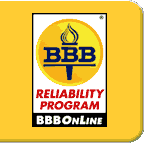I. Course Description
An introductory first course in differential equations. Topics include
linear
first-order differential equations, applications, homogeneous linear
differential equations, second-order linear equations , systems of
differential equations, and the Laplace Transforms.
Credit Hours: 3 credits 3 class hours
Prerequisite: Math 1920
II. Course Outcomes and Topics
Upon successful completion of this course, students will:
• Use first-order and second-order differential equations and their solutions .
• Apply the concepts of differential equations to suitable mathematical
model.
• Use graphing calculators and/or computer software as tools for the field of
study.
• Apply analysis, synthesis, symbol manipulation , graphical
conceptualization and technical writing skills in real -world situations.
• Analyze real-world problems related to population growth, predators and
prey , competing species and corporations, biology, chemistry, mechanics,
thermodynamics, harmonic oscillation, resonance, electric circuits, and
anything else that moves.
• Analyze solution techniques comparatively : graphical, numerical, matrix,
symbolic, and transforms.
Topics
I. First-order Differential Equations
• Modeling with differential equations, separation of variables,
existence and uniqueness of solutions
• Homogeneous equations and exact equations
• Linear equations
• Qualitative and numeric methods
II. Linear Systems
• Linear algebraic systems , Gaussian and Gauss- Jordan elimination
methods
• Matrix operations
• Eigenvalues and eigenvectors
• Systems of first-order differential equations
• Systems of first-order differential equations
• Qualitative method: phase plane
• High-order linear differential equations
• High-order linear differential equations
• Laplace transform
• Laplace transform
II. Required Materials
Students must check with the instructor before purchasing any materials
• Required: Differential Equations by Blanchard, Devaney and Hall, 3rd
edition, Publisher: Cengage, ISBN 0-495-01265-3
• Optional: Differential Equations Student Solution Manual,
ISBN 0-495-01461-3
• Calculator/software: A graphing calculator is strongly recommended or
required. The TI-84+ calculator will be the demonstration tool in the
classroom. Some software may be used. (The instructor will clarify.)
IV. Course Polices
Attendance
Each Instructor will provide information regarding his/her attendance policy.
Failure to attend class will result in a final course grade of “FA” or “FN” (see
explanation below) depending on the individual instructor’s course policy.
FA= failure, attendance-related (unofficial withdrawal) Last recorded date of
attendance required
FN= failure, never attended class (unofficial withdrawal)
Method of Evaluation :
Grading: 90-100 A, 80-89 B, 70-79 C, 60-69 D, below 60 F
The instructor will clarify specific examination, homework, and other methods of
evaluation.
V. ADA Statement
Nashville State Technical Community College complies with the Americans with
Disabilities Act. If you wish to request any special accommodations for any
courses in which you are enrolled, contact the Disability Coordinator at 353-
3721. Such services must have proof of documentation that is not over three
years old.
VI. Classroom Behavior
Nashville State Community College has a zero tolerance policy for disruptive
conduct in the classroom. Students whose behavior disrupts the classroom will
be subject to disciplinary sanctions.
The instructor has primary responsibility for control over classroom behavior
and
maintenance of academic integrity. He/she can order temporary removal or
exclusion from the classroom of any student engaged in disruptive conduct or in
conduct which violates the general rules and regulations of the College.
Disruptive behavior in the classroom may be defined as, but is not limited to,
behavior that obstructs or disrupts the learning environment (e.g., offensive
language, harassment of students and professors, repeated outbursts from a
student which disrupt the flow of instruction or prevent concentration on the
subject taught, failure to cooperate in maintaining classroom decorum, etc.),
the
continued use of any electronic or other noise or light emitting device which
disturbs others (e.g., disturbing noises from beepers, cell phones, palm pilots,
lap-top computers, games, etc.).
Please be aware that children are not allowed in class or unattended on
campus.
Academic Dishonesty (Honor Code)
Any form of academic dishonesty, cheating, plagiarizing, or other academic
misconduct is prohibited. “Plagiarism may result from: (1) failing to cite
quotations and borrowed ideas, (2) failing to enclose borrowed language in
quotation marks, and (3) failing to put summaries and paraphrases in your own
words” (A Writer’s Reference 331). Academic dishonesty may be defined as, but
is not limited to, intentionally trying to deceive by claiming credit for the
work of
another person, using information from a web page or source without citing the
reference, fraudulently using someone else’s work on an exam, paper, or
assignment, recycling your own work from another course, purchasing papers or
materials from another source and presenting them as your own, attempting to
obtain exams/materials/assignments in advance of the date of administration by
the instructor, impersonating someone else in a testing situation, providing
confidential test information to someone else, submitting the same assignment in
two different classes without requesting both instructor’s permission, allowing
someone else to copy or use your work, using someone else’s work to complete
your own, altering documents, transcripts or grades, and forging a faculty/staff
member’s signature.
In addition to other possible disciplinary sanctions that may be imposed through
regular college procedures as a result of academic dishonesty the instructor has
the authority to assign an “F” or a “Zero” for the exercise, paper, or
examination
or to assign an “F” for the course.
NOTE: This syllabus is meant simply as a guide and overview of the course, the
topics, the objectives, the general assessments, and some standard college
policies. Some items are subject to change or revision at the instructor’s
discretion. Each instructor will further clarify their criteria for grading,
classroom
procedures, attendance, exams and dates, etc.



